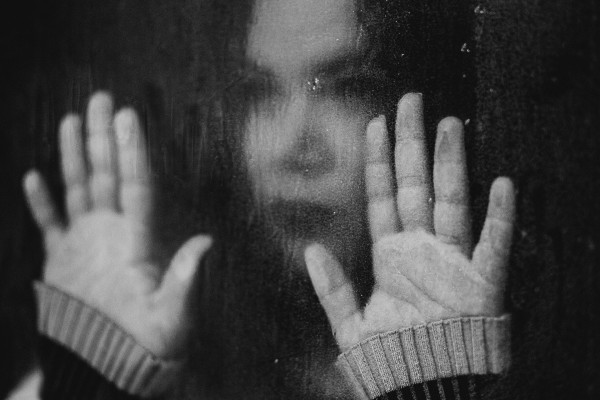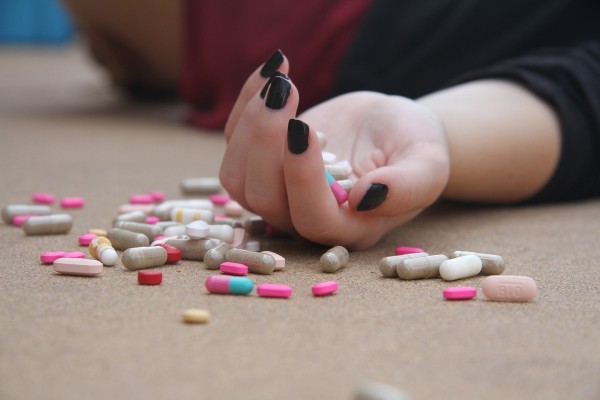Things you need to know about Self Harm
Self harm is defined as the act of purposely hurting oneself (as by cutting or burning the skin) as an emotional coping mechanism.
Some people may ask for help, and sometimes self-injury is discovered by family members or friends. A medical professional doing a routine medical exam may notice signs, such as scars or fresh injuries.
There's no diagnostic test for self-injury. Diagnosis is done on a physical and psychological evaluation. You may be referred to a mental health therapist who has expertise in treating self-injury for evaluation.
He will evaluate you for other mental health disorders related to self-injury, such as depression or personality disorders. In that case, evaluation may include additional tools, such as questionnaires or psychological tests.

Coping tips if you self-injure include:
- Connect with individuals who support you so you don't feel alone. Discuss with a family member or friend, contact a support group, or get in touch with your doctor or mental health professional.
- Avoid websites that support or glamorize self-injury. Look out for sites that support your recovery efforts and completely motivate you.
- Learn to emote in positive ways. For example, to be in better control of your emotions, play a sport, be physically active, practice relaxation techniques, or enroll in dance, art or music class.
- Preparing for your appointment: Your first appointment might be with your family doctor, or health care provider, a school nurse or a counselor. But because self-injury often requires specialized mental health care, you may be referred to a mental health therapist for evaluation and treatment.
- Provide accurate, thorough and honest information about your situation and your self-injuring behavior. Ask a family member or friend to accompany you for support and to help you remember information.
Some important self-care tips are:
- Following your treatment plan diligently. Attend therapy sessions and take prescribed medications as directed.
- Take charge of the feelings that might trigger your desire to self-injure. Look out for ways to soothe or distract yourself or to get support, so you're ready the next time you feel the urge to self-injure.
- Ask for help. Inform your therapist about all incidents related to self-injury. Confide in a trusted family member or friend as the person you'll immediately contact if you have an urge to self-injure or if self-injuring thought exists.
- Take care of yourself. Combine physical activity and relaxation exercises as a regular part of your daily regime. Eat healthy. Ask your therapist for advice if you have sleep problems, which can significantly affect your behavior.
- Avoid alcohol and recreational drugs. They affect your decision making abilities and can put you at risk of self-injury.
- Seek medical treatment to treat your wounds.

The best way to treat self-injuring behavior, is to ask a therapist for help. Counseling is done on your specific mental health issues you are facing, such as depression. Before self-injury becomes a major part of your life, it's better to get treated from a mental health professional experienced in self-injury issues.
If the self-injury behavior is associated with depression or borderline personality disorder, the treatment plan focuses on that disorder, as well as the self-injury behavior.
Treating self-injury behavior requires time, hard work and your own willingness to recover.
Psychotherapy: Psychotherapy is known as talk therapy or psychological counseling.
It can help you to:
- Identify and manage existing issues that trigger self-injuring behavior
- Learn skills to manage distress
- Learn how to regulate your emotions
- Learn how to boost your self confidence
- Develop skills to work on your relationships and social skills
- Develop a healthy problem solving approach
Several types of individual psychotherapy may be helpful, few examples are:
- Cognitive behavioral therapy (CBT): CBT helps you identify unhealthy, negative beliefs and behaviors and replace them with healthy, adaptive ones
- Dialectical behavior therapy: Dialectical behaviour therapy is a type of CBT that teaches behavioral skills to help you tolerate distress, manage or regulate your emotions, and improve your relationships with others
- Mindfulness-based therapies: Mindfulness based therapies help you live in the present, appropriately perceive the thoughts and actions of those around you to reduce your anxiety and depression, and improve your general well-being
Though there are no medications to specifically treat self-injuring behavior, your doctor may recommend antidepressants or other medications if you're diagnosed with a mental health disorder, such as depression or an anxiety disorder. Treatment may help you feel less compelled to hurt yourself.
If you injure yourself often, your doctor may recommend you to be admitted to a hospital for psychiatric care. Short term Hospitalization can provide a safe environment and more-intensive treatment until you get through a crisis. Mental health day treatment programs also may be an option.